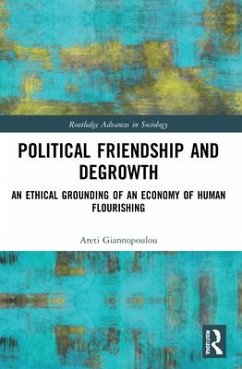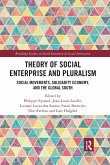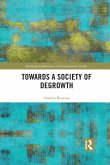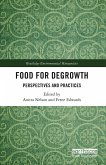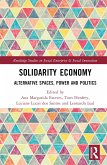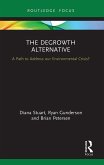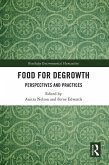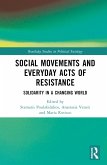Developing a contemporary account of political friendship and synthesizing it with the radical movement of degrowth, this book provides the ethical grounding and the rationale of an alternative economy which serves human flourishing.
The Aristotelian political friendship embodies active concern for the others' well-being that contemporary societies lack; the crucial problems of ecological destruction and global poverty illustrate this friendship deficit. Arguing for the need for re-embracing a friendly civic ethos and re-aligning the economy with moral objectives, the author updates the Aristotelian idea and identifies it with democratic-autonomous political-economic praxis that ensures citizens' self-actualization. Degrowth movement questioning economic growth and productivism, and privileging a simpler life with less material goods, favours political friendship precisely because it nourishes its unconscious substratum namely human instinctual sociality. The call for genuine democratic political praxis that political friendship implies could enable the degrowth movement to retain its radical character and accomplish the shift to an economy which serves life.
The book is worthwhile studying by students and researchers across social sciences and especially by scholars in the fields of sociology, philosophy, and politics, but also a broader readership sensitive to the issues of social and environmental sustainability will find this work extremely interesting.
The Aristotelian political friendship embodies active concern for the others' well-being that contemporary societies lack; the crucial problems of ecological destruction and global poverty illustrate this friendship deficit. Arguing for the need for re-embracing a friendly civic ethos and re-aligning the economy with moral objectives, the author updates the Aristotelian idea and identifies it with democratic-autonomous political-economic praxis that ensures citizens' self-actualization. Degrowth movement questioning economic growth and productivism, and privileging a simpler life with less material goods, favours political friendship precisely because it nourishes its unconscious substratum namely human instinctual sociality. The call for genuine democratic political praxis that political friendship implies could enable the degrowth movement to retain its radical character and accomplish the shift to an economy which serves life.
The book is worthwhile studying by students and researchers across social sciences and especially by scholars in the fields of sociology, philosophy, and politics, but also a broader readership sensitive to the issues of social and environmental sustainability will find this work extremely interesting.
"Political Friendship and Degrowth argues for the relevance of Aristotle's concept of political friendship, a kind of extension of interpersonal friendship across the communities we live in, and potentially further. It is a concept that connects with the ideals and practices of solidarity, mutuality and accompaniment. Areti Giannopolou relates this idea, negatively to the writings of Adam Smith (the free market with its invisible hand), and more positively to Karl Marx (and economic equality) and Otto Neurath (a free, associational socialism). She explores the concept of the solidarity economy and discovers limitations in its political vision, it being tied to the logic of the market."
Mark H Burton, book review published in Steady State Manchester
"In this insightful study, philosopher Areti Giannopoulou unearths the ancient value of political friendship, and argues that it could remedy the social and ecological shortcomings of contemporary economies. According to Giannopoulou, the pursuit of material interests leads to ecological degradation, while the focus on competing individuals destroys social bonds and ultimately causes humanitarian crises, such as poverty and starvation. As a remedy to these crises, the author proposes an invigorated Aristotelian concept of political friendship, which she develops in dialogue with a rich array of modern thinkers from feminist and Marxist schools of thought."
Jonny Gruensch, book review published in The White Horse Press
"Areti Giannopoulou has written an ambitious book that proposes and defends a new economic order based on the fundamental importance of political friendship to human flourishing. Turning to Aristotle to establish the meaning and value of friendship, Giannopoulou argues that political friendship consists of a concern for the well-being of others combined with a disposition to contribute to that well-being, and a set of actions that actually benefits the other."
P. E. Digeser, book review published in The Review of Politics. DOI:10.1017/S0034670523000128
Mark H Burton, book review published in Steady State Manchester
"In this insightful study, philosopher Areti Giannopoulou unearths the ancient value of political friendship, and argues that it could remedy the social and ecological shortcomings of contemporary economies. According to Giannopoulou, the pursuit of material interests leads to ecological degradation, while the focus on competing individuals destroys social bonds and ultimately causes humanitarian crises, such as poverty and starvation. As a remedy to these crises, the author proposes an invigorated Aristotelian concept of political friendship, which she develops in dialogue with a rich array of modern thinkers from feminist and Marxist schools of thought."
Jonny Gruensch, book review published in The White Horse Press
"Areti Giannopoulou has written an ambitious book that proposes and defends a new economic order based on the fundamental importance of political friendship to human flourishing. Turning to Aristotle to establish the meaning and value of friendship, Giannopoulou argues that political friendship consists of a concern for the well-being of others combined with a disposition to contribute to that well-being, and a set of actions that actually benefits the other."
P. E. Digeser, book review published in The Review of Politics. DOI:10.1017/S0034670523000128

